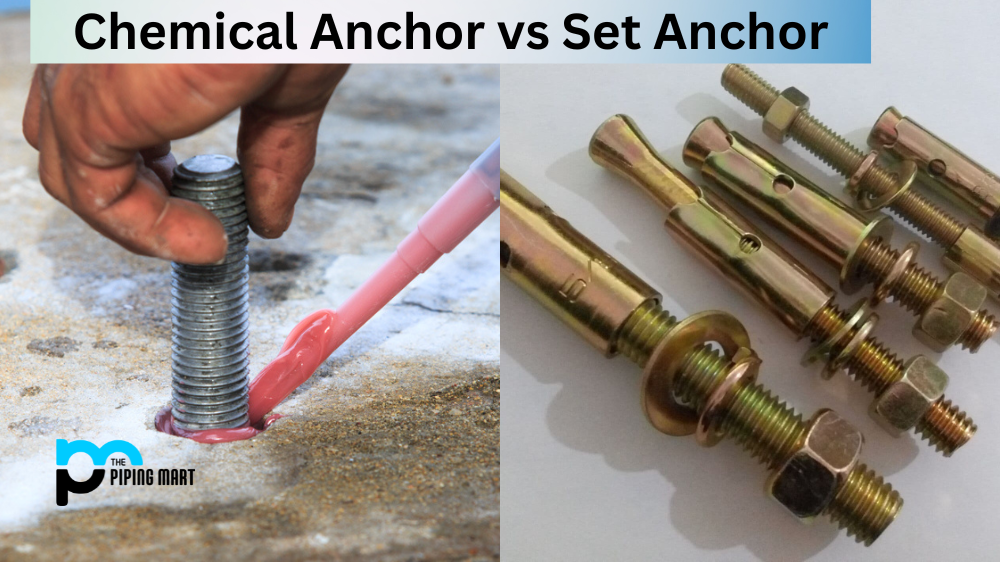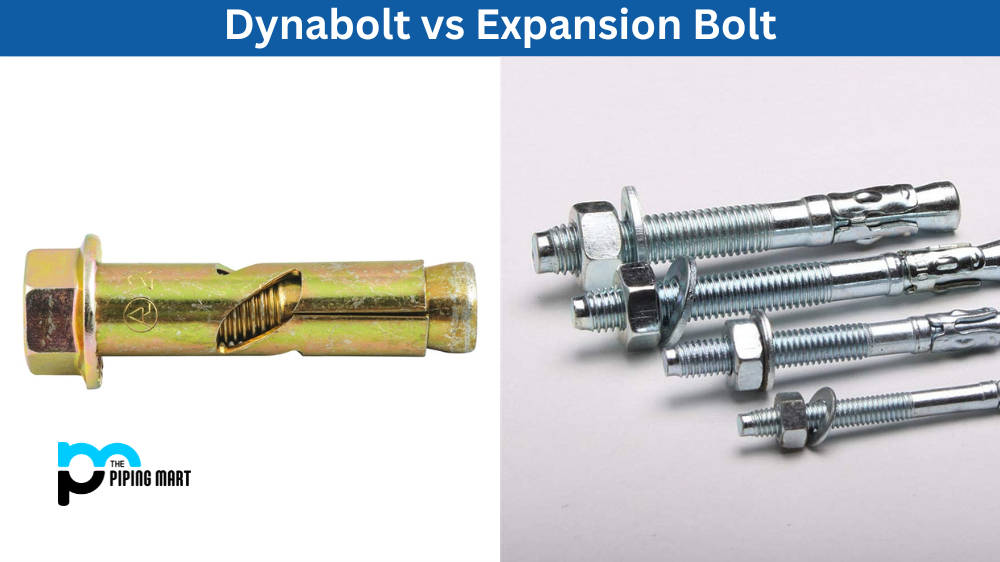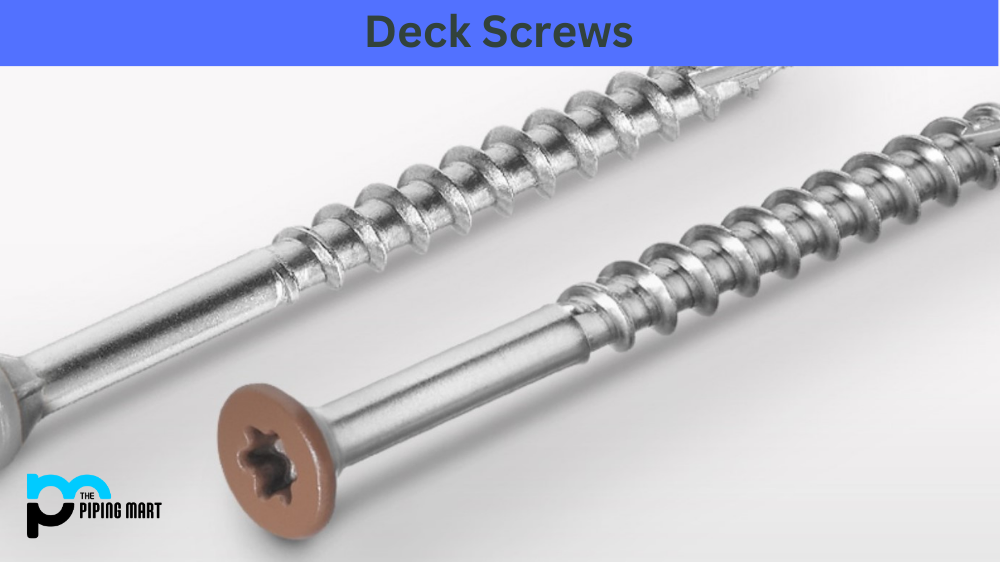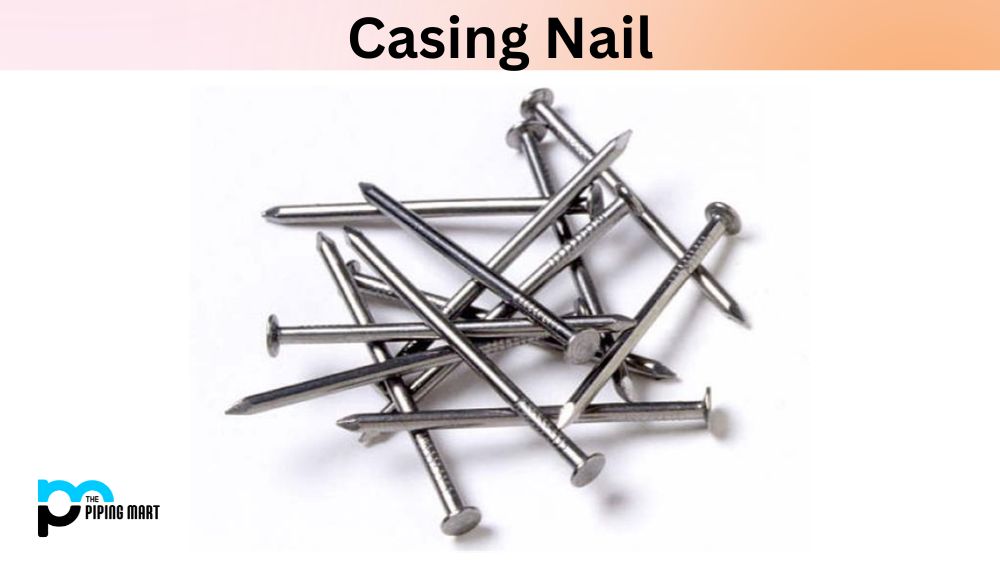When it comes to construction work, there are a few things that you should know about chemical anchors and set anchors. While both of these solutions can be effective for anchoring concrete, metal, or masonry, there are advantages and disadvantages to each option. It is important to understand the differences between these two types of anchors so that you can make an informed decision when choosing which type of anchor is best for your project.
Chemical Anchor
A chemical anchor is a type of anchoring system specifically designed to secure fixtures into concrete or masonry. This solution typically consists of a two-part epoxy resin and hardener, which are mixed together before being injected into pre-drilled holes in the substrate. The mixture then expands and hardens, creating a strong bond with the substrate material. Chemical anchors offer superior strength compared to other types of anchors and require minimal time for installation since no mechanical components need to be installed. Additionally, they have excellent vibration resistance and can be used in wet conditions where other types of anchoring systems may not be suitable. However, one downside is that they tend to be more expensive than other options, such as set anchors.
Set Anchor
Set anchors are another type of anchoring system commonly used in construction projects. These anchors consist of a steel body with threads on either end that secure fixtures into concrete or masonry substrates by expanding against the substrate material when tightened with a nut or bolt. This expansion creates a tight seal between the substrate and anchor which helps ensure that the fixture will stay securely in place over time. Additionally, set anchors require minimal preparation and installation time since no mixing is required; simply tighten the nut or bolt until it is flush with the substrate surface. However, one potential downside to this type of anchor is that they may not provide as much vibration resistance as chemical anchors due to their reliance on mechanical components rather than adhesion technology like chemical anchors use.
Difference Between Chemical Anchor and Set Anchor
Advantages of Chemical Anchor
One of the main advantages of chemical anchors is that they can be used in wet or dry conditions. This makes them ideal for use in areas where traditional set anchors would not be able to provide a secure hold. Additionally, chemical anchors typically have a higher load-bearing capacity than set anchors, making them ideal for use in applications where strength is critical.
Advantages of Set Anchor
One of the main advantages of set anchors is that they are less likely to fail than chemical anchors. This is because set anchors form a physical bond with the concrete, while chemical anchors only form a chemical bond. Additionally, set anchors are less likely to be damaged by water or chemicals, making them ideal for use in environments where these substances are present.
Disadvantages of Chemical Anchor
One of the main disadvantages of chemical anchors is that they can be more expensive than set anchors. Additionally, chemical anchors require special equipment for installation, which can also add to their cost. Finally, chemical anchors can be susceptible to damage from water or chemicals, making them less ideal for use in certain environments.
Disadvantages of Set Anchor
One of the main disadvantages of set anchors is that they require more time and effort to install than chemical anchors. Additionally, set anchors are not as strong as chemical anchors and may not be suitable for use in applications where strength is critical.
Conclusion:
Both chemical anchor and set anchor systems can be effective for securing fixtures into concrete or masonry substrates; however, each option has its own unique advantages and disadvantages, which should be taken into consideration when deciding which type of anchor system is best for your project needs. For example, if vibration resistance is important, then a chemical anchor may be preferable due to its superior strength; however, if ease of installation and cost efficiency are desired, then using a set anchor may be more suitable. Ultimately it’s up to you to decide which type of anchoring system will best suit your specific project needs!

Abhishek is a seasoned blogger and industry expert, sharing his insights and knowledge on various topics. With his research, Abhishek offers valuable insights and tips for professionals and enthusiasts. Follow him for expert advice on the latest trends and developments in the metal industry.




